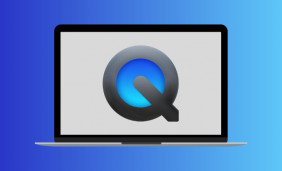The digital world offers a plethora of multimedia platforms, but there are a few that truly leave a mark because of their functionality and reliability. One such platform is QuickTime, developed by the tech giant Apple Inc. This application specializes in handling various formats of digital video, audio, image, panoramic images, and interactivity. But one question arises, what about utilizing QuickTime on Linux operating systems? Let's investigate.
The Challenge With QuickTime and Linux
As most adept tech users are aware, QuickTime was specifically designed for MAC OS and Windows. However, Linux, an equally significant platform, wasn't included in these primary releases. Truth be told, getting QuickTime to work seamlessly on Linux can be challenging for a regular user. The incompatibility can be off-putting and may even lead some users to search for alternatives.
QuickTime Operation in a Linux Environment
The good news is, the availability of linux QuickTime isn’t entirely absent. With the right steps and a little bit of maneuvering, Linux users can also enjoy QuickTime’s unrivaled multimedia experience. Software libraries and multimedia frameworks such as FFmpeg and Libquicktime are some of the few options that can facilitate QuickTime's operation on Linux.
The Integration and Adaptations Involved
It must be mentioned that the process of enabling QuickTime on Linux is not as straightforward as installing a regular application. Users will need to navigate through several steps, engaging different software libraries and tools to finally achieve a fully functional QuickTime download for Linux. Notably, Libquicktime, a library written in C, can become an efficient tool to manage the task at hand. It was essentially designed to interact and work in sync with QuickTime's video and audio codecs.
QuickTime Alternatives for Linux Users
- VLC Media Player: Known for its compatibility with a wide range of audio and video formats, VLC is often the go-to choice for many users.
- MPlayer: While not as versatile as VLC, it is still a highly preferred option for playing video files.
- Xine Multimedia Playback Engine: Apart from providing great audio and video outputs, it’s also open-source, which is a win-win for Linux users.
A Specific Case: QuickTime for Ubuntu
When it comes to specific Linux distributions like Ubuntu, the method of making the QuickTime work is essentially the same. However, the process might need a bit more tweaking, considering the different environments the distribution operates in. A fully equipped QuickTime for Ubuntu system can create a near-perfect experience of audio and video playback for users. Topics like these highlight the importance of adaptability and versatility in software applications, further emphasizing the need for software developers to consider multiple platforms during the design and development stage.




 A Comprehensive Guide: How to Install QuickTime
A Comprehensive Guide: How to Install QuickTime
 A Step-by-Step Guide to Installing QuickTime on a Chromebook
A Step-by-Step Guide to Installing QuickTime on a Chromebook
 Explore the Potential of QuickTime on iPad & iPhone
Explore the Potential of QuickTime on iPad & iPhone
 Discover QuickTime - the World's Leading Multimedia Platform for Linux Systems
Discover QuickTime - the World's Leading Multimedia Platform for Linux Systems
